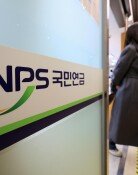Corporations to Normalize Ads in Major Dailies
Corporations to Normalize Ads in Major Dailies
Posted June. 24, 2008 03:12,
After yielding to the campaign against running ads in the nations three major conservative dailies -- the Chosun Ilbo, the JoongAng Ilbo and the Dong-A Ilbo, corporations are changing their stance to counter the threat head-on.
Notably, such a change in the stance has been led by CEOs and chairmen of corporations.
According to businesses, major firms have either resumed running ads in conservative dailies or are considering resuming their ads in the dailies soon.
A chairman of a major conglomerate ordered a senior executive in charge of public relations to resume the ad, saying, It is necessary to run ads in major dailies to sell our products. Do not succumb to the criticism of some people, but run the ads as usual.
A CEO said, Apart from selling products, I thought that yielding to the threat of some leftist forces that can shake the market economy to the root is not different from sitting idle while watching the nation face a serious threat. (My company) will run more ads in dailies that have firm conviction in the market economy and the significance of corporations.
As a result, the volume of ads returned to the normal level in the three major dailies whose amount of orders received decreased immediately after some Koreans launched the ad boycott. A considerable number of large corporations have recently normalized the volume of ads in the major dailies, and ads of travel agencies, facing the summer holiday season, have also notably surged.
Many CEOs have ordered employees in charge of public relations not to be disturbed by threatening calls or criticism on the Internet. Instead, they are encouraged to make more efforts to do business as usual.
While dealing with threatening calls in calm attitudes, corporations began recording phone calls and tracing IP addresses so as to secure evidence of those who curse or repeatedly impede business.
Other factors that encouraged corporations to resume their ads include practical judgment that they may face managerial difficulties unless they keep running ads, and growing social concerns over the ad boycott.
A senior executive of a food and beverage maker said, The demand for our products usually increases in summer. As the ad boycott prolongs, we are expected to face big operational difficulties. As a result, we cannot help running our ad again.
Prosecutors investigation on collective threats and intemperate speeches to put pressure on corporations to stop running ads in conservative dailies and hamper corporate activities has also freed corporations from psychological burden.
Some people even pressured corporations to begin running ads in small-scale leftist dailies, instead of running ads in major dailies, only in vain.
A senior executive of a consumer goods maker said, The threat to cut the links with major dailies and run ads in smaller dailies, which are not influential enough to make impact, is an activity to seriously dampen the interest of shareholders. It is not different from demanding the breach of trust. Until now, we have first chosen major dailies and run ads in minor dailies only when we have more resources to spend.
In fact, lots of corporations have temporarily stopped running their ads not only in major dailies but also in small dailies, thus contracting the whole newspaper ad market.
A source from an economic organization said, If corporations cannot be engaged in operation and marketing activities due to the ad boycott, domestic demand, which has already decreased, would further cool down. If it happens, not only the nations economy but also Koreans working for the domestic demand industry will suffer from hardships.






![장마당서 옷 팔던 北처녀, 인사동 개인전 열기까지[주성하의 북에서 온 이웃]](https://dimg.donga.com/c/138/175/90/1/wps/NEWS/IMAGE/2025/12/05/132901507.1.jpg)
